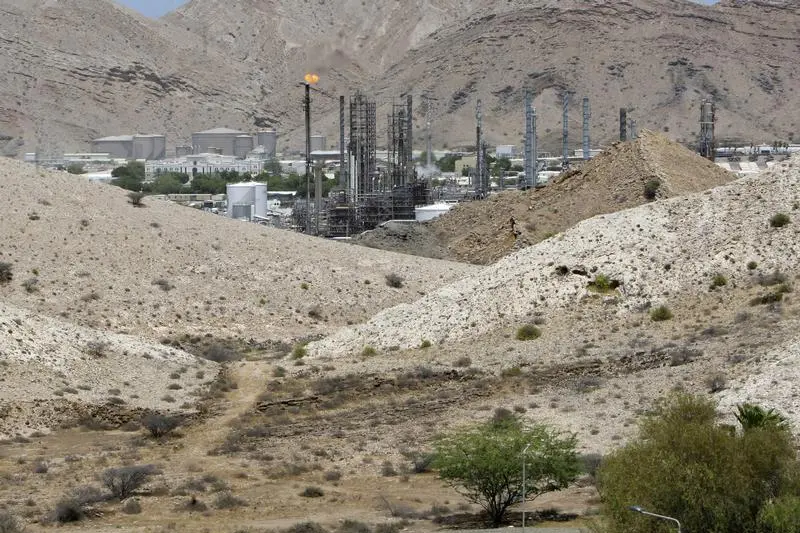PHOTO
DUBAI - Oman's state budget deficit shrank by nearly three-quarters in the first two months of this year as a rise in oil prices boosted export revenues sharply, official figures released this week showed.
The country has one of the weakest financial positions among the wealthy Gulf oil exporting states, so the data may reassure investors -- although the figures also revealed Oman is making little progress in expanding non-oil revenues, leaving it vulnerable to any downturn in oil prices.
The government's deficit in January-February fell to 268.3 million rials ($697 million) from 997.8 million rials a year earlier, the state statistics agency said, resuming publication of the budget data after suspending it for six months.
It did not give reasons for the suspension or for its decision to resume publication. Provisional and incomplete figures released by the central bank several weeks ago showed a fiscal deficit of 610.6 million rials in the first two months.
Government revenues rose 17.2 percent to 1.13 billion rials as net oil revenue shot up 24.3 percent to 749.2 million rials, the statistics agency said.
The Brent oil price averaged $67.48 a barrel in January-February this year, up from $55.72 a year earlier; it is now just below $75.
But the budget figures showed non-oil sources of revenue were sluggish, with income from corporate tax, customs duties and miscellaneous other revenues all shrinking.
Oman originally planned to introduce a 5 percent value-added tax this year but has delayed that until at least 2019, partly because of concern about the negative impact on consumer spending.
The deficit's plunge during January-February was also due to spending restraint by the government. Including expenditures under settlement, or funds that had been allocated but not yet disbursed, spending dropped to 1.40 billion rials from 2.0 billion rials, partly because of lower investment spending.
Oman's original 2018 budget plan projected spending of 12.5 billion rials this year, revenues of 9.5 billion rials and a deficit of 3.0 billion rials, and assumed an average oil price of $50 per barrel.
(Reporting by Andrew Torchia) ((andrew.torchia@thomsonreuters.com; +9715 6681 7277; Reuters Messaging: andrew.torchia.thomsonreuters.com@reuters.net))





















